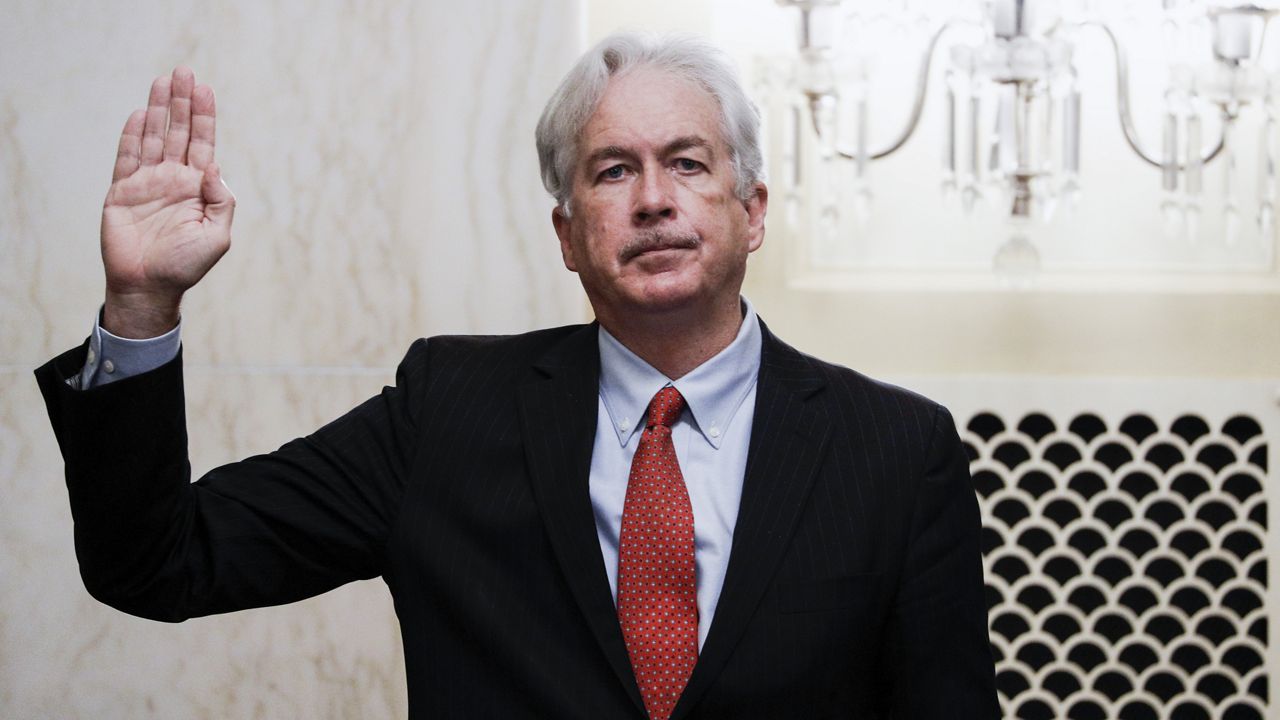Veteran diplomat William Burns was unanimously confirmed by the U.S. Senate on Thursday to serve as CIA Director, bringing years of experience in foreign service to the nation's top intelligence agency.
The move came minutes after Sen. Ted Cruz (R-TX) announced that he would lift a hold on the nomination following a warning from Secretary of State Antony Blinken to companies involved in Russia's Nord Stream 2 pipeline.
Burns, President Joe Biden's pick to lead the Central Intelligence Agency, made special mention of China when laying out his priorities for leading the key intelligence organization during his confirmation hearing last month.
"If confirmed, four crucial and interrelated priorities will shape my approach to leading CIA: China, technology, people, and partnerships," Burns said in his testimony before the Senate Intelligence Committee.
Burns, who has served in both Democratic and Republican administrations, faced an easy road to confirmation; he had already been confirmed by the Senate five times – as Ambassador to Jordan under former presidents Bill Clinton and George W. Bush, Assistant Secretary of State for Near Eastern Affairs and United States Ambassador to Russia under Bush, Under Secretary of State for Political Affairs under Bush and Barack Obama, and, most recently, Deputy Secretary of State in the Obama administration.
He also received a unanimous vote from the Senate Intelligence Committee prior to his full Senate vote.
Sen. Mark Warner (D-VA), the committee chairman, told former ambassador Burns that he deserves "a well-earned retirement, but your country still needs you."
Former Secretary of State James Baker under former President George H. W. Bush also had high praise for Burns: "Bill Burns is a leader, and a steady hand under fire. He never hesitates to speak truth, even when he knows it may be unwelcome."
“He’s a public servant who’s spent his life serving and protecting Americans," former CIA Director and Secretary of State Leon Panetta said of Burns. "And as CIA Director he will certainly speak truth to power.”
Burns would take over a CIA that was perpetually the target of attacks from the former administration; in announcing Burns' selection, Biden said that they share a belief that "intelligence must be apolitical and that the dedicated intelligence professionals serving our nation deserve our gratitude and respect."
"After four years during which the expertise and judgment of America’s civil servants were at times belittled and discounted, the next director must lead & inspire patriotic professionals w/humility and compassion," Warner noted, "And dispassionately judge the actions of adversaries."
"I'd like to hear how you plan to reinforce the credo, no matter the political pressure, no matter what, that the CIA's officers will always do the right thing and speak truth to power," Warner said.
"Good intelligence delivered with honesty and integrity is America's first line of defense," Burns told the committee. "Politics must stop where intelligence work begins."
"Today’s landscape is increasingly complicated and competitive," Burns said in his opening statement. "It’s a world where familiar threats persist – from terrorism and nuclear proliferation, to an aggressive Russia, a provocative North Korea, and a hostile Iran."
"But it’s also a world of new challenges, in which climate change and global health insecurity are taking a heavy toll on the American people, in which cyber threats pose an ever-greater risk to our society, and in which an adversarial, predatory Chinese leadership poses our biggest geopolitical test," he added.
Burns also noted that the agency has to work "even harder to enhance diversity, equity, and inclusion, from entry-level to senior ranks."
While Burns does not have an intelligence background, his extensive foreign service experience has led to significant policy, including helping lead back-channel conversations with Iran, alongside Biden's now-national security adviser Jake Sullivan, that led to the 2015 nuclear agreement. Biden has pledged to reenter a nuclear pact with Iran, though attempts to resurrect that deal have met some resistance.



